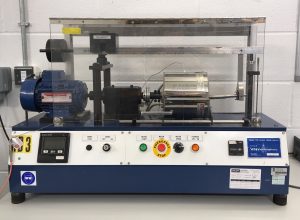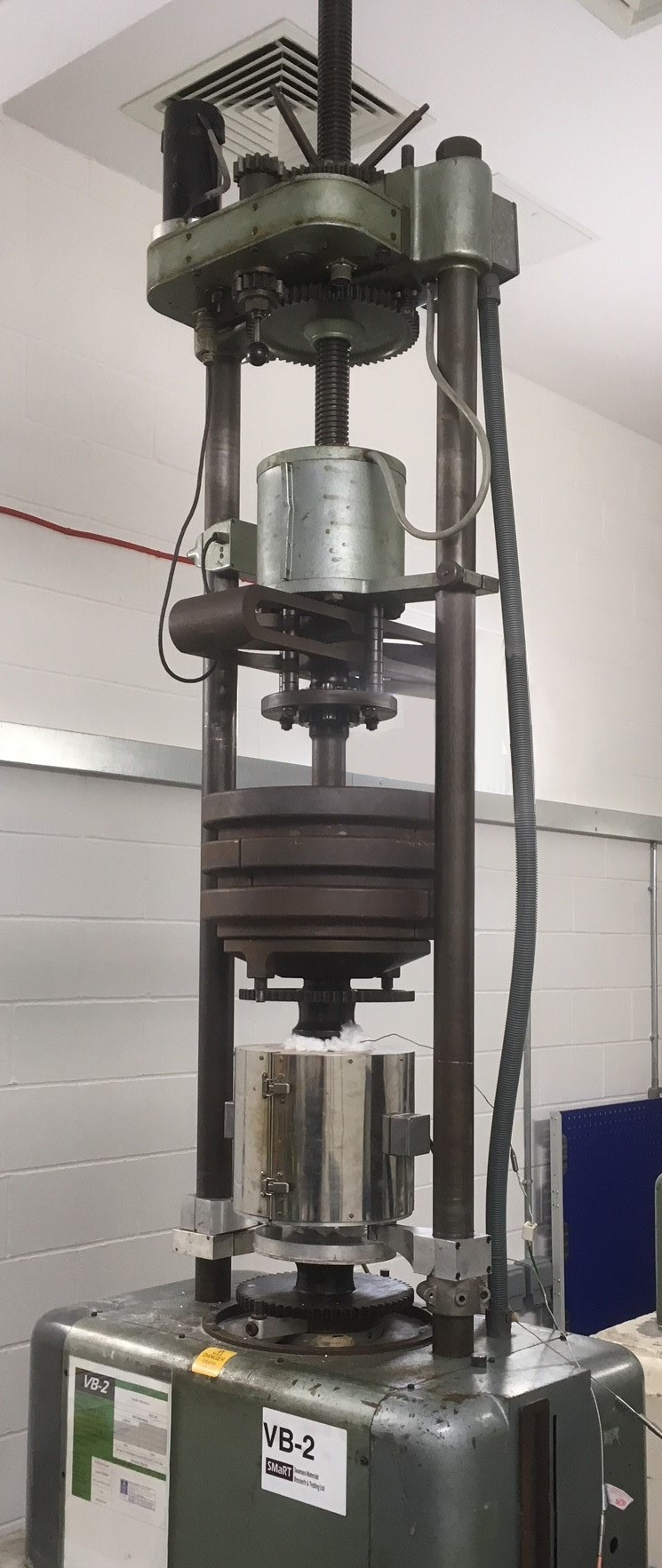1) Axial High Cycle Fatigue
High cycle fatigue testing under load control involves performig a number of tests across a range of stresses (S) to determine their number of cycles to fracture (N), allowing the user to generate an S/N curve. This facilitates our customers with the information required to predict behaviour of their materials, which is critical for design, safety and verification purposes. Typical HCF lives of tests are in the order of millions of cycles.
2) Rotating Bend High Cycle Fatigue
SMaRT also has the capability to perform HCF testing using rotating bend fatigue machines. The machines operate on the Wohler principle using a standard rotating cantilever specimen. One end of the specimen is held in the motor chuck, the other is free floating and has a load applied via a weighted beam, causing the specimen to bend. The machines are fitted with a split furnace allowing for testing at temperatures up to 850°C.

SMaRT routinely conducts high cycle fatigue testing in compliance with the following international and industry standards (working to other standards are available upon request):
- BS 6072 Aerospace series – Metallic materials –Test methods – Constant amplitude fatigue testing
- BS ISO 1143 Metallic materials – Rotating bar bending fatigue testing
- ISO 1099 Metallic materials – Fatigue testing – Axial force-controlled method
- prEN 3874 Draft European Aerospace Standard – Test methods for metallic materials – Constant amplitude force-controlled low cycle fatigue testing
- ASTM E466 Standard Practice for Conducting Force Controlled Constant Amplitude Axial Fatigue Tests of Metallic Materials

